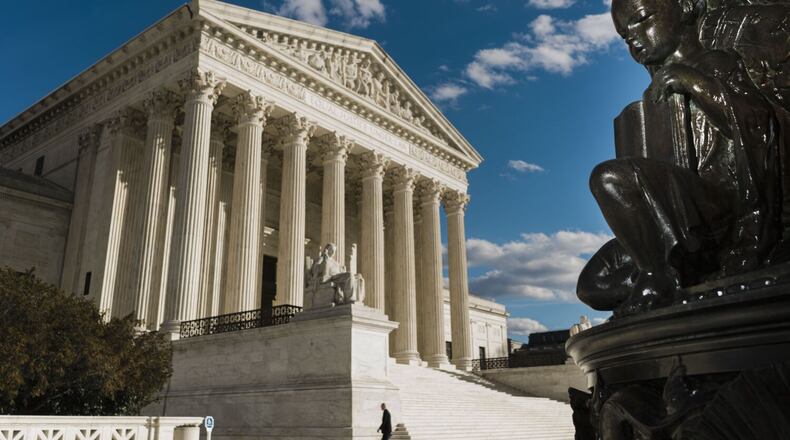As we celebrate our 248th Independence Day this week, I am left wondering, as I think many of us are, whether we will keep this republic, as Benjamin Franklin quipped on Sept. 17, 1787, after he was asked by Elizabeth Willing Powel what form of government the constitutional conveners decided upon.
Franklin, who was one of our nation’s most revered Founding Fathers was there at the outset in 1770 when rumblings of discontent turned into the seeds of rebellion. It all started because mad King George III was running rampant over the colonists. The tipping point came when British troops killed five colonists in what would later be called the Boston Massacre. Three years later, in 1773, outrage over the Tea Act prompted colonists to board an East India Company ship in Boston Harbor and dump its cargo into the sea in the now-infamous Boston Tea Party.
Credit: handout
Credit: handout
My point should not be missed: The founders rejected the rule of monarchs, despots and tyrants. They despised the monarchy and the arrogance and absolute power of the monarch. In the Declaration of Independence, ratified on July 4, 1776, Thomas Jefferson wrote, in part:
“The history of the present King of Great Britain is a history of repeated injuries and usurpations, all having in direct object the establishment of an absolute Tyranny over these States. To prove this, let Facts be submitted to a candid world.
“He has refused his Assent to Laws, the most wholesome and necessary for the public good.
“He has forbidden his Governors to pass Laws of immediate and pressing importance, unless suspended in their operation till his Assent should be obtained; and when so suspended, he has utterly neglected to attend to them.
“He has refused to pass other Laws for the accommodation of large districts of people, unless those people would relinquish the right of Representation in the Legislature, a right inestimable to them and formidable to tyrants only.”
So, we must be clear for those who love to hearken to “originalism” or “textualism”: Our founding documents, including our Declaration of Independence from the tyrannical then-king of England, clearly state that the in the United States, no one person has complete powers, absolution or freedom to abuse, misuse or be allowed to commit criminal acts from the perch of high office against Americans.
That is why we adopted a written Constitution that we still follow to this day (as amended), and that is why we formed a republican form of government that vested its powers first, in “the people” and then in the three coequal branches of government, which are ultimately responsible to the people.
Monday’s 6-3 Supreme Court immunity ruling, granting former President Donald Trump “absolute immunity” for his official acts and leaving the lower court to decide what are “unofficial acts” was a political tsunami. This case will indeed resonate throughout American history, as Justice Neil M. Gorsuch said during the oral arguments in April 2024, “we are writing a rule for the ages.”
In his remarks on Monday night, President Biden said of the landmark decision of the nation’s high court:
“This nation was founded on the principle that there are no kings in America. Each, each of us is equal before the law. No one, no one is above the law, not even the president of the United States.... There are no kings in America. Each, each of us is equal before the law. No one, no one is above the law, not even the president of the United States.”
In Federalist 69, Alexander Hamilton went to great lengths to contrast the powers of the American president with those of the king of England, making it clear that the American executive had checks and balances and restraints upon his powers. Specifically, Hamilton argued that the president’s authority “would be nominally the same with that of the King of Great Britain, but in substance much inferior to it. It would amount to nothing more than the supreme command and direction of the military and naval forces, as first general and admiral of the confederacy.’” He continued “The President of the United States would be liable to be impeached, tried, and upon conviction of treason, bribery, or other high crimes or misdemeanors, removed from office; and would afterwards be liable to prosecution and punishment in the ordinary course of the law.”
As we gather this Fourth of July, more than 245 years later, we must remember from whence we came. We wanted religious liberty — not a national religion with a president who would be head of a national faith, as Trump seemed to indicate this past week. We wanted economic freedom and the chance to create individual wealth. We wanted liberty to move freely about without fear our government might harass or harm us. (Remember that news reports indicated that Trump wanted to have the military shoot protestors in 2020.) We wanted the freedom to think, read, and speak what we wanted, to marry who we wanted, protest when needed and pursue life, liberty and happiness.
In the final analysis, we need to really sit with this radical Supreme Court decision that nullifies why we had an American Revolution in the first place. Our very purpose and mission as a nation is to serve as a beacon of light to those who are oppressed, to those who live under the tyrannical constraints we once did. Our Supreme Court has made clear that we now have an imperial presidency.
So, this Independence Day, my prayer will be, “May god save the people of the United States.” We might soon need saving from our aspiring future King Donald.
Sophia A. Nelson, who is admitted to the bar of the U.S. Supreme Court, is the author of “ePluribus One: Reclaiming Our Founders’ Vision for a United America.”
About the Author






